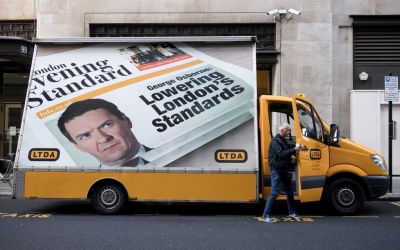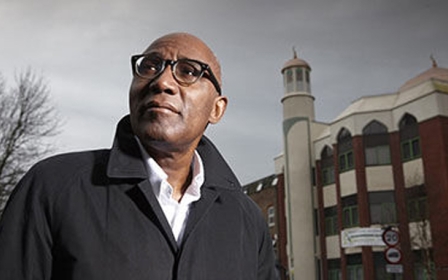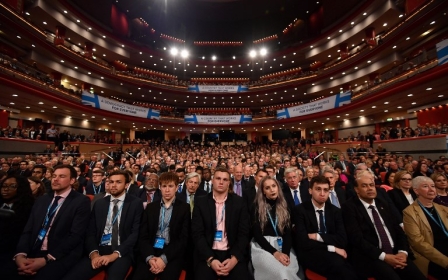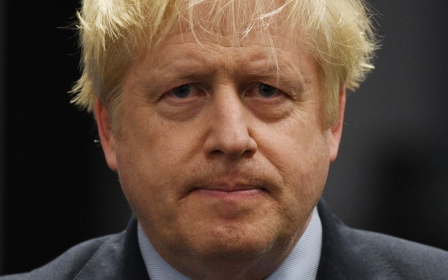Trevor Phillips row: Islamophobia is no laughing matter
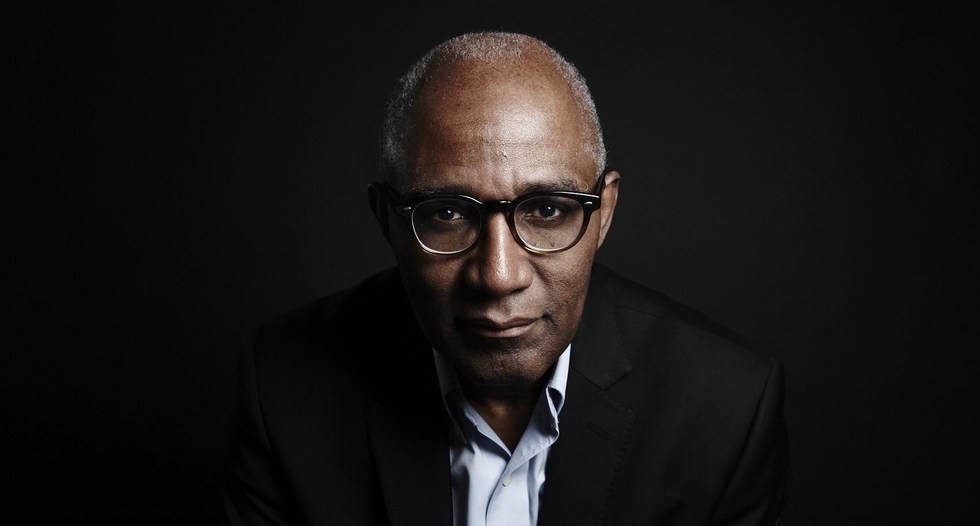
The Conservative right has found itself a new martyr: step forward Trevor Phillips, former head of the Equality and Human Rights Commission.
Today’s British papers paint a picture of a courageous anti-racism campaigner who has been unfairly suspended by the Labour Party for the supposed heresy of telling a few home truths about British Muslims.
According to a thunderous column in today’s Daily Telegraph, Phillips is the victim of a “an insidious attack on freedom of expression from people who claim to support it but evidently don’t”.
According to The Times, Phillips is guilty of “free-thinking about the dilemmas of ethnic and religious integration”. Lord Mann, the government’s antisemitism “tsar”, denounced the suspension as grotesquely unfair: “There’s only one word to describe this action - it’s Orwellian.”
New MEE newsletter: Jerusalem Dispatch
Sign up to get the latest insights and analysis on Israel-Palestine, alongside Turkey Unpacked and other MEE newsletters
'Islamophobe of the Year'
Phillips himself said on Monday that Labour was in danger of collapsing into a “brutish, authoritarian cult” and compared it to the Spanish Inquisition. This body was notorious for inflicting hideous tortures to extract forced confessions from supposed heretics to enforce monolithic loyalty to a state church. Suspension from a political party is not on quite the same level of suffering.
So what is going on here? Is Saint Trevor correct? Has the Labour Party really converted itself into a persecutor of free speech, and is Phillips really one of its martyrs? Or is something else going on?
The logic of The Times, and to be fair almost every other Fleet Street paper, is that mockery of Muslims can and must be defended on free speech grounds, as part of the British public discourse
Let’s examine the actual evidence. Phillips himself properly says he cannot reveal the precise charges against him. Fair enough. But The Times, which broke the story on its front page on Monday morning and carried a large op-ed from Phillips himself, has no such scruples.
The Times says it has seen the draft charge sheet. The first alleged offence it cites concerns some remarks Phillips made at a Conservative Party conference fringe event: “I don’t know if I’m the only one here who’s been nominated by a UN body as the Islamophobe of the Year.” Phillips then reportedly exchanged banter with veteran gay rights campaigner Peter Tatchell: “You might have been, Peter, no?” To laughter, Tatchell joked: “I’m jealous!”
The Times notes: “What might have been regarded as a light-hearted exchange between two old comrades of Britain’s long struggle for equality and diversity was, to the Labour Party, nothing short of intimidation of Muslims.”
Antisemitism versus Islamophobia
Well, maybe. But let’s suppose that Phillips had boasted that he’d been nominated by the UN as “antisemite of the year” and that a fellow panellist had joked that he was “jealous”.
It is impossible to imagine such an exchange taking place. Had it occurred, it is equally impossible to imagine The Times (or any other decent newspaper) dismissing the conversation as “a light-hearted exchange between two old comrades”.
In fact, I have no doubt at all that such a conversation would have been treated as a national scandal. Front-page headlines denouncing Phillips as a bigot and antisemite would have dominated all newspaper front pages the following day, and rightly so.
The Times and other papers would have been unanimous in calling for the suspension of Phillips. In practice, I have no doubt that Phillips would not only have been suspended from Labour Party membership, but also flung out of the party. And quite rightly; there can be no room for antisemitism in British public life.
This brings me to the subtext of the Phillips story. It’s simple: Islamophobia - hatred or mockery of Muslims - should be treated in a completely different way to antisemitism.
The logic of The Times, and to be fair almost every other Fleet Street paper, is that mockery of Muslims can and must be defended on free speech grounds, as part of the British public discourse.
Shocking allegations of abuse
That is the agenda behind this week’s row about the Phillips' suspension. It finally brings out into the open one of the most perplexing features of Britain today: that one set of rules governs public discourse around Muslims, while there is a different set for everyone else.
There was a telling example of this phenomenon last week, when the Muslim Council of Britain published a document setting out dozens of allegations of Islamophobia inside the British Conservative Party.
Many of the examples were shocking. They included the chair of a local party association calling for Muslims to be banned; a member who wanted Muslims thrown off bridges; and another member who urged forcible sterilisation of Muslims. The cases cited stretched from the most junior party cadres up to cabinet level.
Yet the Daily Telegraph, which devoted so many column inches to the Phillips case, didn’t cover it at all. The Times gave it seven paragraphs on an inside page. There was no mention of it in the Mail, which likewise devoted immense attention to the Phillips story.
I guess that if you treat Islamophobia as a laughing matter, there’s no need to report the evidence of the abuse, mockery and all too often physical violence aimed at Muslims.
The logic of the Times and most other papers is that Muslims should accept that their concerns are a subject for mockery and banter.
Time for public debate
Thirty years ago, women’s rights campaigners and homosexuals had to endure the same treatment. They do not now, and neither should Muslims.
Of course, Phillips, like anyone else, deserves to be protected from false or malicious accusations from any source. Significantly, none of the accusations against Phillips are recent, and none seem to have been made by Muslims. MEE reached out to Phillips for comment on the matter, but had not received a response by the time of publication.
By mocking the term Islamophobia, he was mocking thousands of Muslims who have to suffer violence, mockery and discrimination in their daily lives
Yet I am not, at this stage, prepared to accept that Phillips is a martyr, either on his own valuation or that of his vocal supporters. Labour’s decision to suspend him (pending investigation) appears neither prejudiced nor irrational.
This episode is, however, welcome in one sense. It’s well past time that we in Britain had a public debate about abuse of Muslims. And by a perverse irony it was Phillips, in his capacity as chairman of the Runnymede Trust, who helped usher the term Islamophobia into official public discourse.
Back then, Runnymede described it as “an outlook or world-view involving an unfounded dread and dislike of Muslims, which results in practices of exclusion and discrimination”. It noted that “anti-Muslim prejudice has grown so considerably and so rapidly in recent years that a new item in the vocabulary is needed”.
'An ugly reality'
I agreed then, and I agree now. The report said that the term described “a real and growing phenomenon - an ugly word for an ugly reality”.
This is why I find it hard to understand why Phillips was happy to joke about the term at a Tory party conference, and harder still to understand his outraged reaction when Labour chose to investigate his comments.
I believe that by mocking the term Islamophobia, he was mocking thousands of Muslims who have to suffer violence, mockery and discrimination in their daily lives. That’s not acceptable.
The views expressed in this article belong to the author and do not necessarily reflect the editorial policy of Middle East Eye.
Middle East Eye delivers independent and unrivalled coverage and analysis of the Middle East, North Africa and beyond. To learn more about republishing this content and the associated fees, please fill out this form. More about MEE can be found here.




